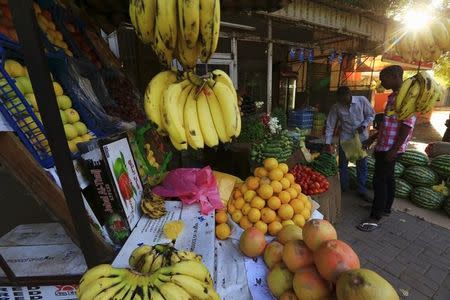Sudan inflation rises to 30.47 pct in December

KHARTOUM (Reuters) - Sudan's annual inflation rate rose to 30.47 percent in December from 29.49 percent in November, the Central Statistics Office said on Wednesday, as food and energy prices kept rising after subsidies were cut in early November. Sudan's economic problems have been building since the south seceded in 2011, taking with it three-quarters of the country's oil output, its main source of foreign currency and government income. With revenue dwindling, the government announced subsidy cuts to fuel and electricity in early November that saw petrol prices rise about 30 percent. A dollar shortage and a ballooning black market for hard currency have made imports more expensive. To reduce dollar demand and protect local industry, Sudan has also banned imports of meat and fish and raised import tariffs on other goods. But the restrictions have further fuelled inflation in a country that relies heavily on imported goods. Sudan's parliament passed its 2017 budget last month and projected a deficit of 2.1 percent of GDP for the coming year, up from 1.6 percent for 2016 [nL5N1EO29M]. The 2017 budget projects a growth rate of 5.3 percent, down from an expected 6.4 percent for 2016, and targets average inflation of 17 percent in the coming year. (Reporting by Khalid Abdelaziz; Writing by Asma Alsharif; Editing by Larry King)

